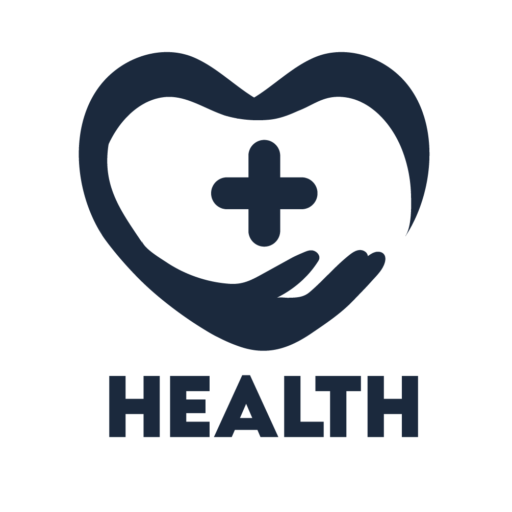Vaccinations are one of the most effective public health tools available today, preventing millions of deaths each year and helping to control the spread of infectious diseases. From childhood through adulthood, vaccines protect individuals and communities by preventing illnesses like measles, polio, and influenza. However, despite their effectiveness, many people still have questions or concerns about vaccines and immunization.
Vaccinations and Immunization Essentials In this blog, we’ll explore the essentials of vaccinations and immunizations—what they are, how they work, and why they are critical for individual and community health. We’ll also address common myths and provide guidance on keeping up-to-date with your vaccination schedule.
What Are Vaccinations and How Do They Work?
Vaccinations are a method of building immunity to specific diseases. They involve introducing a small, harmless part of a disease-causing microorganism—like a weakened or inactivated virus or bacterium—into the body. This triggers an immune response without causing illness, allowing the immune system to recognize and “remember” the pathogen if it’s encountered again.
The immune system then produces antibodies, proteins that specifically target and neutralize the pathogen. If the vaccinated individual is later exposed to the actual disease, their immune system can respond quickly and effectively, either preventing the illness altogether or significantly reducing its severity.
Vaccines don’t just protect the person who gets vaccinated—they also contribute to “herd immunity.” When a large percentage of a community is immunized, the spread of contagious diseases is slowed or even stopped, protecting those who cannot be vaccinated, like infants, elderly individuals, and those with weakened immune systems.
Types of Vaccines and Their Mechanisms
There are several types of vaccines, each designed to work with the immune system in specific ways:
- Inactivated (Killed) Vaccines: These vaccines contain pathogens that have been killed, so they cannot cause disease. Examples include the polio vaccine and the hepatitis A vaccine.
- Live Attenuated Vaccines: These contain a weakened form of the live pathogen. Because they closely mimic an actual infection, they tend to provide strong, long-lasting immunity. Examples include the measles, mumps, and rubella (MMR) vaccine and the chickenpox vaccine.
- Subunit, Recombinant, and Conjugate Vaccines: These vaccines use specific parts of the pathogen (like proteins or sugars) to trigger an immune response. They don’t contain live components, making them safe for people with weakened immune systems. Examples include the hepatitis B and HPV vaccines.
- mRNA Vaccines: mRNA vaccines (such as some COVID-19 vaccines) deliver a small piece of genetic code that instructs cells to produce a protein unique to the pathogen. This protein then triggers an immune response. mRNA vaccines are a new technology but have shown high effectiveness and safety.
Each type of vaccine has unique benefits, but all are designed to train the immune system to recognize and defend against specific infections.

Why Vaccinations Are Essential at Every Age
While many vaccines are administered during childhood, adults also need vaccinations to protect against new and emerging health risks, maintain immunity, and protect vulnerable populations.
- Childhood Vaccines: Vaccinations start early in life to protect babies and children from potentially deadly diseases like measles, whooping cough, and polio. The CDC and WHO recommend a specific schedule to ensure children receive full protection during their most vulnerable years.
- Teen and Young Adult Vaccines: Vaccines like the HPV vaccine protect against viruses that can lead to cancer later in life. College-bound young adults are also encouraged to get the meningitis vaccine, as the disease can spread quickly in close living environments.
- Adult Vaccines: Adults may need booster shots for diseases like tetanus, diphtheria, and pertussis. Additionally, seasonal flu shots, pneumonia vaccines, and shingles vaccines are recommended for older adults and those with specific health conditions.
- Travel Vaccines: Those traveling internationally may need vaccines specific to the regions they’re visiting, like yellow fever or typhoid vaccines, to protect against diseases prevalent in other countries.
Staying up-to-date with vaccinations throughout life is essential to maintain immunity and prevent the resurgence of preventable diseases.
Common Myths and Misconceptions About Vaccines
Despite clear evidence supporting vaccine safety and effectiveness, myths and misinformation continue to circulate. Addressing these misconceptions can help people make informed choices about vaccination.
- Myth: Vaccines Cause Autism: This myth originated from a now-discredited study published in the 1990s. Multiple large-scale studies have since shown no link between vaccines and autism.
- Myth: Natural Immunity Is Better Than Vaccine-Induced Immunity: While some natural infections can lead to immunity, they also come with the risk of severe complications. For instance, getting measles can lead to pneumonia, brain damage, or even death, while the MMR vaccine provides immunity with far fewer risks.
- Myth: Vaccines Are Unsafe Due to Side Effects: Like any medical intervention, vaccines can have side effects, but they are typically mild and short-lived. Serious side effects are rare and are carefully monitored by health organizations globally.
- Myth: Vaccines Overwhelm the Immune System: The immune system is highly capable of handling multiple antigens simultaneously. Vaccines contain only a fraction of the antigens the immune system encounters in daily life.
By understanding the facts, people can feel more confident in the decision to vaccinate and help prevent the spread of infectious diseases.
The Importance of Staying Up-to-Date with Vaccinations
Vaccination schedules are developed to ensure maximum protection throughout life. However, some people may miss doses or fail to get necessary boosters. Here’s why staying current is essential:
- Boosted Immunity: Immunity can wane over time for certain vaccines. For example, the tetanus vaccine requires a booster every 10 years.
- Protection Against Emerging Strains: Influenza viruses mutate quickly, which is why the flu vaccine is updated annually. Receiving a yearly flu shot protects against the most common circulating strains.
- Community Health: When you’re up-to-date on vaccines, you’re also helping to protect those around you, including infants, elderly people, and immunocompromised individuals who are more susceptible to infections.
Regularly reviewing your vaccination status with a healthcare provider is an excellent way to ensure you’re fully protected.
The Future of Vaccination: Innovations and Advances
The field of vaccinology is continually advancing, and recent developments have improved the effectiveness and accessibility of vaccines.
- mRNA Technology: With the success of COVID-19 mRNA vaccines, researchers are exploring mRNA technology for other vaccines, including those for flu and certain cancers.
- Universal Flu Vaccine: Scientists are working on developing a universal flu vaccine that would cover all strains and eliminate the need for yearly shots.
- Personalized Vaccines: Cancer vaccines and personalized medicine approaches are being researched, allowing vaccines to be tailored to an individual’s specific immune response and genetic profile.
These advancements hold promise for better prevention and treatment of infectious diseases in the years to come.

How to Access Vaccinations
Vaccines are widely available in clinics, pharmacies, and health centers. Many countries have immunization programs that provide vaccinations at little to no cost. Here are some tips for accessing vaccines:
- Consult Your Doctor: Your primary care physician can advise you on which vaccines you need based on age, lifestyle, travel plans, and health conditions.
- Local Pharmacies: Many pharmacies offer flu, shingles, pneumonia, and other vaccines without an appointment.
- Travel Clinics: If you’re planning an international trip, visit a travel clinic for destination-specific vaccine recommendations.
- Online Resources: Websites like the CDC and WHO provide detailed information about vaccination schedules and recommendations.
By staying proactive about your vaccination needs, you can protect yourself and those around you from preventable diseases.
Conclusion
Vaccinations are a powerful and essential tool in protecting public health. From children to adults, vaccines provide critical immunity against diseases that were once widespread and deadly. While vaccine misinformation exists, understanding the facts can help people make informed decisions about immunization and play a vital role in disease prevention.
Staying informed about vaccinations, keeping up with recommended schedules, and consulting with healthcare professionals can help ensure that you’re well-protected at every stage of life. By prioritizing immunization, we contribute not only to our own health but also to the collective well-being of our communities.

